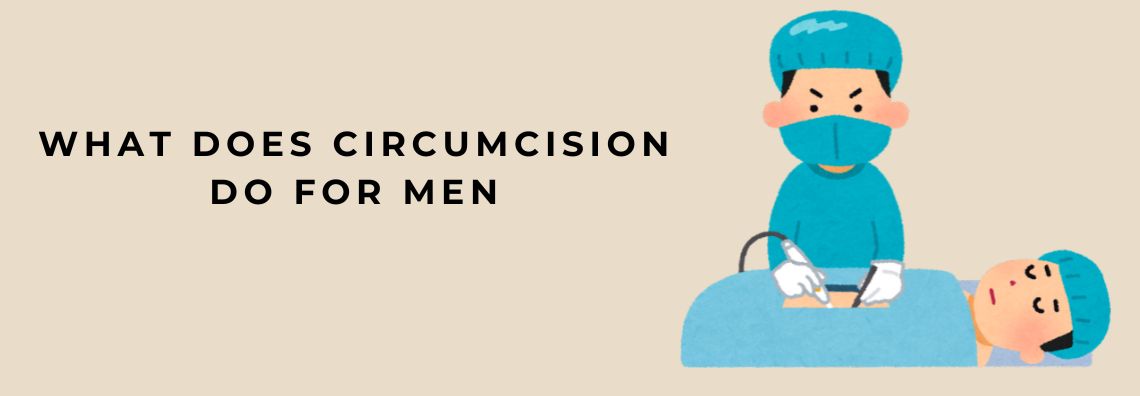
“We hear and read a lot about women’s bodies, its complications and their needs, but less discussed is the science involved with men’s bodies.”
What is Circumcision?
Circumcision is a common surgical procedure, done on males mostly at time of birth. In this the skin, called Foreskin, covering the Penis of the male is removed.
The procedure was started way back with religious aspects linked with it. In Jewish and Islamic families, it is a cultural tradition to perform a circumcision on a newborn. Some Indigenous people also take it as a religious ritual.
Overall, the procedure is not a necessity and is not life threatening if not done. Some parents do not even opt for it for their newborn baby if it seems a little risky.
So, we can say, it is totally up to the parents of the new born baby, whether they want the surgery to be done on their child or not.
What it Does to a Male-
Circumcision exposes the head or tip of the penis. There are several other benefits involved with it, which we will discuss later here.
How it is Done-
During the procedure, the newborn is laid on his back and an anaesthetic is given to prevent pain (if it is done on an older boy or an adult, the patient is injected with a local anaesthesia to put the patient to sleep). Then the area around the penis and the penis are cleaned properly.
After that, a medicine is injected into the base of the penis or spread over it and a plastic ring or a special clamp is attached to the penis. The surgeon then carefully removes the foreskin.
After the surgery, an ointment is applied on the penis and is covered by a loose gauge. The whole process takes about 10 to 20 minutes.
It takes about 7 to 10 days for the penis to get healed.
The Ideal Time of Circumcision-
The best and most ideal time to perform the Circumcision surgery is at the time of the birth, within 48 hours. Yes, the older boys and adults too can get a surgery later on but, the risks and problems include more at that time.
Why There is a Need of Doing Circumcision?
Beside cultural and religious aspects, there are various medical reasons also involved. Many families have a family tradition to have it done at time of birth.
Sometimes, the foreskin becomes too tight on penis. In this case too, the surgery becomes important to perform.
Also, countries like Africa, where the HIV virus is prevalent, it is recommended to have the surgery to lower the risk of it.
Various Health Benefits of the Circumcision Surgery-
- Lower risk of UTIs (Urinary Tract Infections)- It is observed that though, the risk of Urinary Tract Infections in males are low, but the case of it in males who haven’t had circumcision surgery done is more.
- Lower risk of STDs (Sexually Transmitted Diseases)- The risk of getting Sexually Transmitted Diseases gets low when a male is circumcised at time of birth. Though, no matter what, it is very important to have safe sex and to always use condoms if you and your partner had not got yourself examined for STIs.
- Easy to clean- Circumcision makes it easier for males to clean the penis.
- Lower risk of penile cancer- The rate of Cancer of penis is low but, the observed cases of the same are more in men who were not circumcised.
“The cases of cervical cancer in females is less when their sexual partners are circumcised.”
- Prevention of penile problems- Sometimes the foreskin on the penis becomes hard or impossible to pull back. The problem is called Phimosis. This causes swelling or inflammation in the foreskin or head of the penis. The issues could even happen in adults and the risk of doing a circumcision surgery at adulthood is more.
The risks involved with not being circumcised are rare and low but can be prevented by it.
Also, the success rate of it is very high. Hardly about 3 % of circumcision cases face complications.
What to keep in mind is that circumcision has no link with the ability of the male to have babies in his adulthood. Another misconception people usually have about the surgery is that it increases the sexual pleasure or sexual capabilities of a male but, there are no proofs or scientific claims like till now.
Risks Involved With The Surgery-
- The foreskin may get cut too short or too long.
- The healing of the foreskin may not happen properly.
- The risk of too much bleeding and sometimes infection to occur is there.
- Minor surgical repair may be needed, when the remaining foreskin gets reattached to the head of the penis.
- You might face complications because of anaesthesia used to operate.